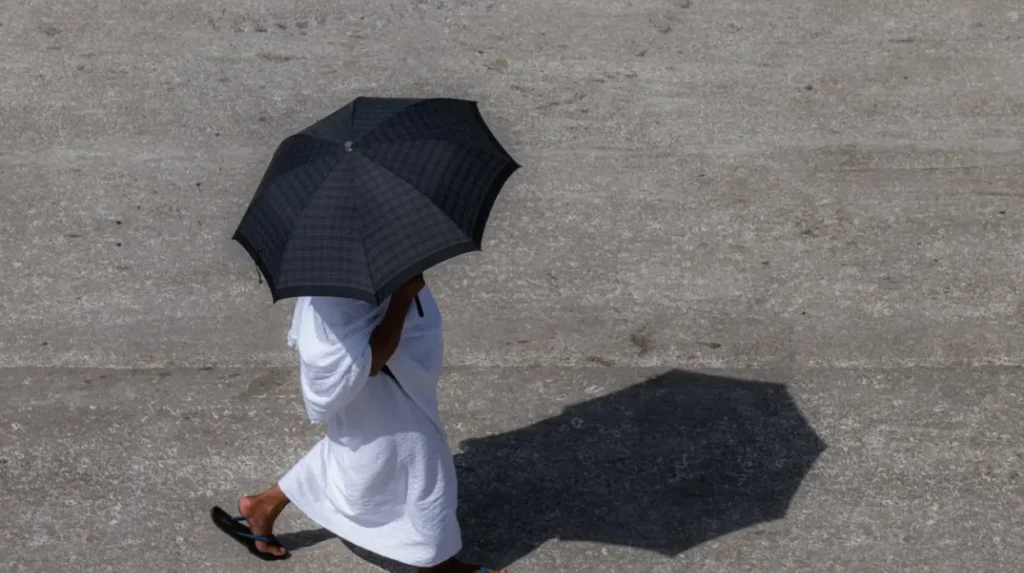On June 6, 2025, at least 13 Iranian pilgrims passed away while attending the Hajj pilgrimage this year in Saudi Arabia, primarily due to excessive heat and presumably negligence in being responsible for the health and well-being of foreign visitors. While such tragedies have become inconveniently commonplace during the traditional pilgrimage each year, this tragedy is more basic and urgent regarding Saudi Arabia’s preparedness and moral credibility to host one of the globe’s largest global sporting events—the 2034 FIFA World Cup. The inexcusable loss of lives of these pilgrims portrays a persistent pattern of negligence, concealment, and indifference towards human lives,a pattern that has no place in the global sporting fraternity.
The Tragedy of Hajj 2025: A Preventable Catastrophe
Every year, tens of millions of Muslims journey to Mecca for the Hajj, one of the globe’s biggest mass gatherings. With this flood of pilgrims comes a humongous responsibility for Saudi officials to ensure they remain healthy and safe, especially as global warming pushes temperatures in the region to record highs.
However, Iranian reports indicate that at least 13 Iranians have perished this year, probably from heatstroke as temperatures reached over 47°C (116.6°F). Iran’s Red Crescent Society warned pilgrims to remain hydrated and stay out of the sun, but the question is: What was Saudi Arabia doing to keep these visitors safe?
Where were the shaded rest stops? Why was there not a government-provided universal water distribution system? Why was no emergency climate protocol publicly distributed or exercised? Even if one were to assume the cause of death was from natural conditions, Saudi Arabia’s responsibility to maintain human life in the event of such predictable perils was abysmal.
Climate Risk and the FIFA World Cup: A Disaster Waiting to Happen
The fatalities of the Iranian pilgrims forebode the dire risks confronting supporters, players, and employees at the 2034 Saudi Arabia FIFA World Cup.
- To begin with, the weather factor should be considered. During summer, when the World Cup period traditionally occurs, it is customary for temperatures in Saudi Arabia to regularly reach above 45°C (113°F). That’s a deadly hazard not only for athletes straining themselves on the field but for half a million spectators, security personnel, volunteers, and immigrant laborers constructing and renovating the event facilities.
- At Qatar’s 2022 World Cup, the event was rescheduled for November–December to reduce heat risks. Will Saudi Arabia make similar adjustments to the tournament time of year, or simply pray? The latter appears hauntingly probable, given their history with Hajj security.
- And what of the migrant workers who will build the stadiums, hotels, roads, and arenas for this spectacle?
- Qatar was roundly criticized overseas for exploitation and worker deaths in preparation for 2022. Saudi Arabia’s record is probably worse, with ongoing reports of abuse, delayed wages, passports confiscated, and fatal working conditions.
A Regime Unfit to Lead the World
Beyond logistical and environmental concerns, Saudi Arabia’s hosting of the 2034 FIFA World Cup is a gross moral concern. The country’s abysmal human rights record is, of course, well-documented: censorship of free speech, intimidation of women’s rights activists, imprisonment of dissidents, state-controlled media, and the horrific murder of journalist Jamal Khashoggi in 2018. These are not circumstances that can be separated from being World Cup hosts.
Sports events like the FIFA World Cup are not mere sporting events; they are global fiestas of solidarity, liberty, and shared humanity. How can these values flourish in a nation where free speech is repressed, dissent is silenced, and basic human rights are curtailed?
“Sportswashing” and the Manipulation of Global Image
The Saudi bid for FIFA 2034 is only one aspect of a broader strategy of “sportswashing”—using high-profile sports events to distract from repression and scandal at home.
Excessive spending on LIV Golf, Formula 1 races, the boxing championships, and football club ownership is intended to present the Kingdom as modern and part of the world. They are deceptions. They are cynical gestures of whitewashing a tainted image with war crimes, human rights abuses, and social injustice.
The FIFA gift of the 2034 World Cup to Saudi Arabia is an implicit endorsement of this deceit. It sends the message to the oppressive regimes of the world that human rights abuses can be forgiven if you are willing to spend a lot of money on football.
What Should FIFA and the International Community Do?
FIFA must reverse the wisdom—and morality—of awarding the World Cup to Saudi Arabia. Soccer fans, players, and human rights activists worldwide should harangue soccer’s governing body into rolling back this decision, given the Kingdom’s chronic inability to protect human life.
1. Investigate Labor and Climate Safety Plans
If the tournament does proceed, FIFA must demand explicit, binding guarantees for workers’ protections, climate action measures, and crowd management policies—far more than has been demanded of previous Gulf tournaments.
2. Hold the Saudi Regime Accountable
The unnecessary deaths of the 13 Iranian pilgrims must spur a worldwide probe of how Saudi Arabia manages mass gatherings. Without accountability, more tragedies—on the pitch or the streets—are inevitable.
3 . Support an Alternative Host
The world football family has to search elsewhere for host nations that can provide world-class venues and genuine respect for human life and human rights.
A Country Unworthy of the World’s Biggest Stage
The 13 Iranian pilgrims executed in Saudi Arabia are not just a religious tragedy—they are an alarm bell ringing for the world community. A nation that fails to secure its religious visitors against impending dangers is not entitled to welcome millions of individuals for the world’s largest sports event.

